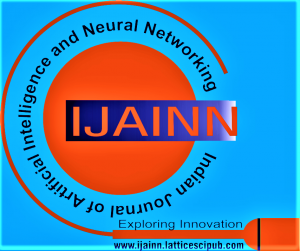AIM
The journal’s mission is to bring together thought, academic research and corporate practice in all areas of Artificial Intelligence and Neural Networking in a reader-friendly format. The journal aims to publish high-quality peer–reviewed articles in the area of Artificial Intelligence and Neural Networking. The research published in the journal is practically relevant, so the results are helpful for managers in leadership roles related to projects, programs, and portfolios. Therefore, the research’s theoretical and managerial implications need to be considered. In other words, the journal seeks excellent contributions to theory and practice and strongly values rigour and relevance.
SCOPE
The Editors reserve the right to reject article(s) without sending them out for review. Submitted articles must be within the scope of the journal. All submitted articles go through a double-anonymized peer-review process. Articles for the regular issue can be submitted electronically throughout the year. The area includes (but is not limited to) the following topics related to Artificial Intelligence and Neural Networking:
- Neural Networks
- Fuzzy Logic
- Simulated Biological Evolution Algorithms (Like Genetic Algorithm)
- Ant Colony Optimization
- Reasoning and Evolution
- Intelligence Applications
- Computer Vision and Speech Understanding
- Multimedia and Cognitive Informatics
- Data Mining and Machine Learning Tools
- Heuristic and AI planning Strategies and Tools
- Computational Theories of Learning
- Technology and Computing (Like Particle Swarm Optimization)
- Intelligent System Architectures
- Knowledge Representation
- Bioinformatics
- Natural Language Processing
- Multiagent Systems
- Supervised Learning
- Unsupervised Learning
- Deep Learning
- Big Data and AI approaches
- Reinforcement Learning
- Learning with Generative Adversarial Networks
- Regression and Prediction
- Problem Solving and Planning
- Clustering
- Classification
- Neural Information Processing
- Vision and Speech Perception
- Heterogeneous and Streaming Data
- Probabilistic Models and Methods
- Reasoning and Inference
- Marketing and Social Sciences
- Knowledge Discovery
- Web Mining
- Information Retrieval
- Design and Diagnosis
- Game Playing
- Streaming data
- Music Modelling and Analysis
- Robotics and Control
- Multi-Agent Systems
